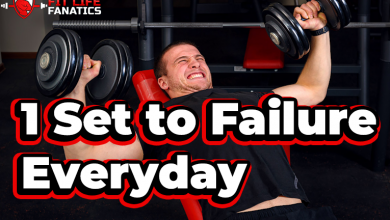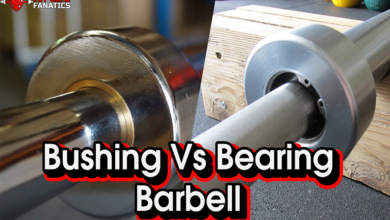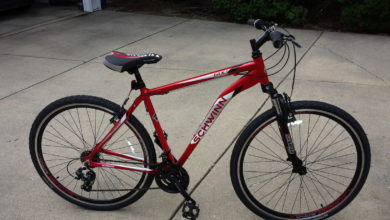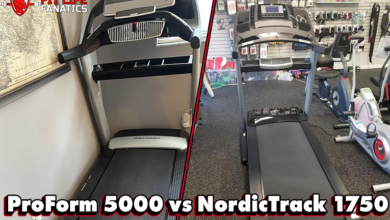Best Protein Powders Without Creatine – My Top Tasting Creatine-Free Picks
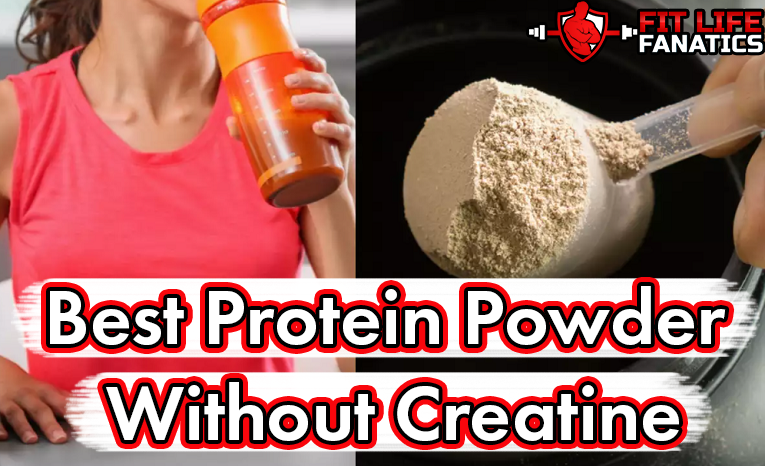
Once used solely by bodybuilders, Protein Powder has become a dietary staple for anyone who’s even remotely interested in fitness.
Right from boomers whose daily fitness routine involves a walk around the neighborhood, to Instagram addicted Calisthenics pros, everyone’s downing meal replacement & protein shakes.
Including me, my personal favorite is Kachava, it's my favorite tasting meal replacement powder that does not contain any creatine at all. You can see my favorite flavor here.
With my top protein shake pick award going to the Lyfe Fuel Essentials Shake.
This flavor here is the one I use pretty much daily now.
To be fair, a protein shake is the easiest way to consume 20-24 grams of protein.
It is convenient and It is delicious.
Also, more protein has its share of benefits, right?
It primes your immune system, keeps you full for longer, is great for your skin and hair, your heart.
Oh, did I forget bigger muscles and better recovery? Hello! (1)
But, there are a few caveats.
Many a time, the target audience for a protein powder-manufacturer isn’t the average joe looking to consume enough protein to match their RDA.
It is the bodybuilder gym rat looking for bigger muscles.
So, they cram their protein powder with unwanted crap, like creatine, which can make your muscles look bigger, but can also cause a whole range of side effects.
You know, the bloat, the rounded pac man face, the water and oily look, and to my recent personal findings, creatine can raise dht, which in turn can cause hair loss. I just went through this issue not even a week ago.
So for me creatine is a big no-no especially in my morning shakes.
The question is, does your protein powder contain creatine?
Wait, let us rephrase that. Do you really need protein powder with added creatine?
Let’s find out.
What is Creatine?
Creatine is a naturally-occurring substance that’s produced by your body and stored in the liver in the form of phosphocreatine.
When you exercise, the levels of phosphocreatine in your liver get depleted rapidly as it is turned into ATP for fueling your workout.
In a nutshell, it is the gasoline that runs your body during exercise.
By supplementing with creatine, you increase the levels of phosphocreatine, which in turn allows you to lift harder, run faster, and perform better for a brief period of time at the start of your workout routine or during your sporting activities.(2)
So far so good, right?
The idea behind adding creatine to protein powder though is a little murky.
Most athletes who need creatine supplement it separately anyway. Creatine monohydrate is cheap and easily available.
If you are already eating red meat and or fish, chances are that you are already getting the required dose of creatine from your food.
Taking more than the required dose will only place added stress to your body.
That’s not the only thing that bothers us.
Side Effects of Using Protein Powder with Creatine in It
Despite having a great safety profile, Creatine is not ideal for everybody.
It may be the cheapest health supplement for a bodybuilder or an athlete. But it can cause some unwanted side effects that a lot of people don’t sign up for when they buy protein powder.
Causes Bloat
One of the ways in which creatine functions is by increasing the amount of intracellular water you hold. (3)
This leads to an increase in muscle strength, which can be beneficial for an athlete.
I just wrote a post on creatine for women here where I talk about the sports benefits. But the thing is I am not an athlete and you most likely are not either.
If you are not an athlete, creatine can result in unwanted weight gain.
More importantly, least to me is that it can make you look bloated. A quick search for creatine bloat will show you hundreds of anecdotal instances where people have gained a lot of water weight, which shows on their face and on their bellies.
If you suspect that you are looking bloated after using Protein powder, then you may want to strip down to your skivvies and take a good look.
If you are holding unwanted water and looking bloated, you know the culprit.
Causes Digestive Problems
In a clinical study that researched the safety and efficacy of creatine, it was found that the most common side effect experienced by the participants was diarrhea, with almost 39% of the participants experiencing it. (4)
Close to 24% of them experienced GI issues.
That sums it up, right?
Creatine can cause tummy problems even in doses as low as 1-3 grams/day.
If you are a senior or have pre-existing GI conditions, then it can get aggravated by using protein powder with creatine.
Can Cause Muscle Cramps
In the year 2000, the American College of Sports Medicine (ACSM) put out an advisory to athletes who exercise in hot environments to avoid creatine because it increases the risk of muscle cramps and dehydration.
Since then, there have been a few studies that have tried to debunk this claim. But the fact is that there are hundreds of anecdotal instances as well, where athletes have experienced muscle cramps.
Why It Is Best to Keep Creatine Out of Protein Powder
To put things into perspective, we aren’t against creatine.
What we are against is sneaking creatine into protein powder just because it makes your muscles appear bigger and makes you gain weight.
This is a misleading sales tactic that creates a false sense of belief in athletes, that the increase in the size of their muscles, is actual growth in lean muscle tissue as opposed to intracellular water.
Also, like we mentioned earlier, Creatine may not be right for everybody.
- Can lower blood sugar to unsafe levels: If you are diabetic and are unknowingly consuming creatine mixed in your protein powder, then it can lower your blood sugar to unsafe levels. Think about it this way. You take your diabetes meds with a meal and then use creatine. Suddenly, your blood sugar is dropping more than normal, which can cause hypoglycaemia. (5)
- Can aggravate kidney problems: Again, this may affect someone who has undetected, pre-existing kidney disease more than it can affect a perfectly healthy person. But creatine can cause renal stress including acute kidney damage in extreme cases. You should always get your renal function assessed before you start using creatine. But what if it’s added to your protein powder and you just don’t know that you’ve been consuming it?
- Can cause/aggravate arrhythmia: There have been instances, both anecdotal and recorded, where athletes using creatine have developed arrhythmia. If you have pre-existing cardiac conditions such as arrhythmia, using creatine can increase the risk. (6)
The Best Protein Powders Without Creatine
All said and done, we have handpicked what we believe are the cleanest label, best protein powders without creatine.
There are no hidden ingredients. The protein sources are verified and least processed. Irrespective of whether you are looking to add more muscle, or looking to meet your RDA of protein, these powders are your best bet.
#1 – Editor’s Choice - Ascent Native Fuel
Best Features
- 25 grams of fast absorbing protein
- Affordable
- My Top 2 Favorite Tasting
- Highly Rated
- Least processed Native Whey
- Mixes in a jiffy
- Naturally sweetened with just 1 gram of (natural) sugar in a serving
- No artificial ingredients

Ascent Native Fuel Review
This top quality whey protein ticks all the right boxes.
It contains 25 Grams of rapid-absorbing Whey and Micellar Casein blend in each serving.
In addition to this, each serving comes with 5.7 g of naturally occurring BCAA’s, 2.7g of Leucine and 12g of Essential Amino Acids. That’s perfect for post workout use.
When it comes to Whey protein, it’s the quality that matters more than the amount of protein in each serving though.
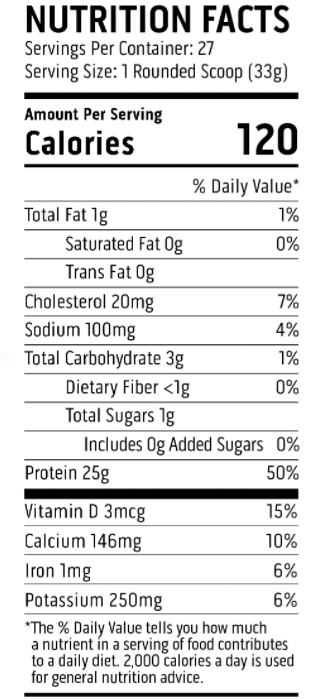
Ascent Native uses Native Whey, which essentially is whey separated from the milk by pressurizing it through a micro filtration system. It is either non-denatured or minimally denatured.
Normal Whey Protein Concentrate, which is used commonly in Whey protein powders, is a by-product of cheese manufacturing and undergoes multiple stages of processing, which reduces the nutrient value.
Ascent Native fuel has great ‘mixability’.
You can throw in a scoop or two to a blender, top it with water or juice and it makes a great shake with zero clumps or unblended gooey powder. The taste is delicious despite there being no added, synthetic sugar.
All in all, you’d be hard pressed to find a better protein powder at this price.
#2 - Best Tasting Protein Powder Without Creatine
Joko Molk
Best Features
- Delicious, creamy texture
- My Favorite Tasting Powder Mix
- Affordable
- Best Protein Powder for Smoothie Makers
- Melts in any beverage without leaving clumps
- Sweetened with Monk Fruit
- No synthetic aftertaste
- 25 grams of Whey Isolate in each serving
- Grass-fed cows. No hormones or soy
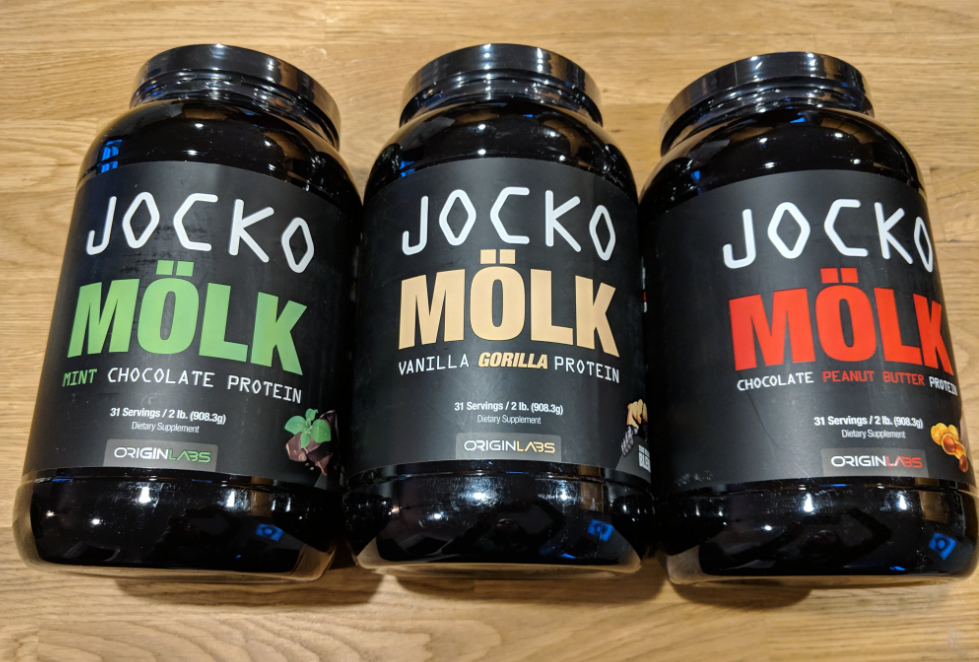
Jocko Molk Review
Jocko Molk is hands down, the tastiest protein powder on earth. Period.
This and Kachava are my two top contenders as far as taste and nutrient dense profiles go.
It has a rich, creamy texture that melts in water or juice. Forms no clumps and doesn’t leave a synthetic aftertaste in your mouth either.
We have tasted stevia-based protein powders before and they taste fine. But Jocko uses Monk Fruit and it tastes way better.
It is available in five delicious flavors and an unflavored version. But the Mint Chocolate is our personal favorite.
Now that we are done with that, it also contains 25 grams of fast absorbing, whey protein isolate in each serving.
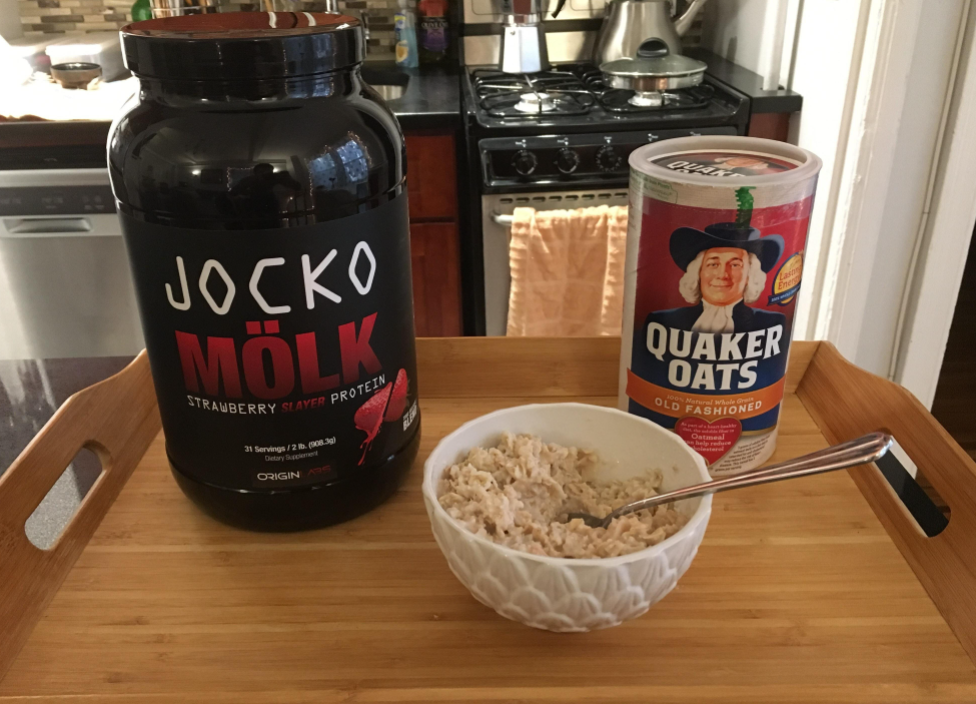
For the uninitiated, Isolate is a better choice if you have burping, flatulence or belching with blended whey. It contains lesser lactose and rarely causes these problems. Jocko also contains infused probiotics to that end.
The Whey is sourced from grass-fed cows and contains no soy or hormones.
Each serving is also topped with a healthy blend of amino acids that aid in recovery.
For what it’s worth, it’s the top rated Isolate protein powder on many online portals.
#3 - All Natural Grass Fed Protein Without Creatine
Levels Whey Protein
Best Features
- 24 grams Protein blend with 5.4 grams of BCAA
- Grass fed whey only
- More Omega 3s, CLA and Vitamin E
- Tastes delicious
- Available in 6 flavors and an unflavored version
- Monk fruit sweetened
- Natural ground cocoa
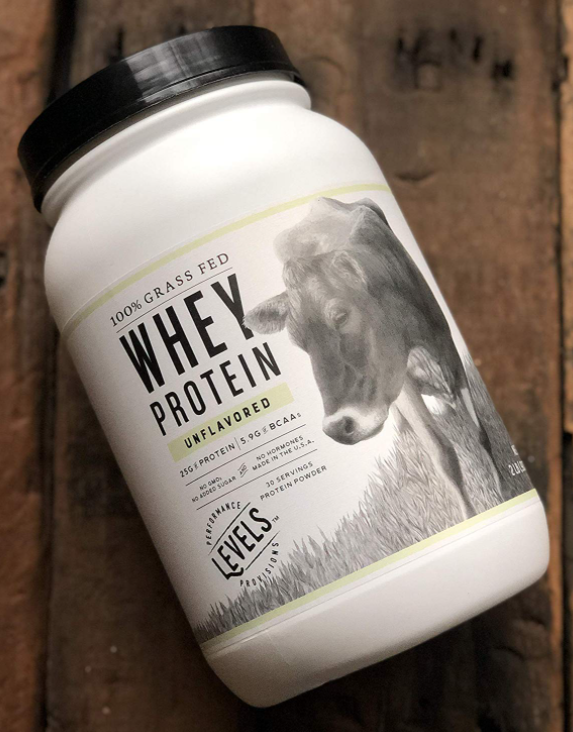
Levels 100% Grass Fed Whey Protein Review
Levels is an all-natural protein blend that gives you 24 grams of protein and 5.4 grams of naturally-occurring BCAAs in each serving.
It is one of the cleanest label protein brands in the business. They source their whey from handpicked suppliers, and the whey is extracted from milk sourced from grass fed cows only.
A lot of buyers don’t know the difference between grass fed whey and grain fed one.
Grass fed whey contains more Omega 3s, CLA and Vitamin E. Also, it is generally believed to be much better as compared to grain fed.
Even if you aren’t hung up over the quality of whey, Levels tastes absolutely delicious. They use natural ground cocoa extracts as opposed to the synthetic chocolate flavoring used in many cheap protein powders.
No added sugar either. The sweetener is monk fruit and it is only mildly sweet. Not overwhelming at all.
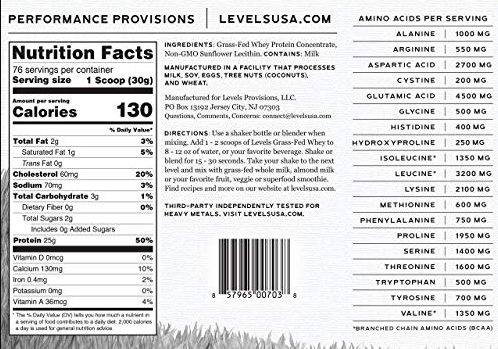
The mixing is effortless. No lumps of unblended powder, even when blended in a shaker.
If a clean, grass-fed protein is what you seek, look no further. Levels is one of the best options.
#4 - Plant Based Vegan Protein Without Creatine
KOS Organic
Best Features
- 20 grams of blended plant protein
- Heart friendly fatty acids from flax and chia
- Digestive enzymes and fiber
- Organic Peruvian cacao
- Organic coconut milk
- Sweetened with monk fruit and stevia
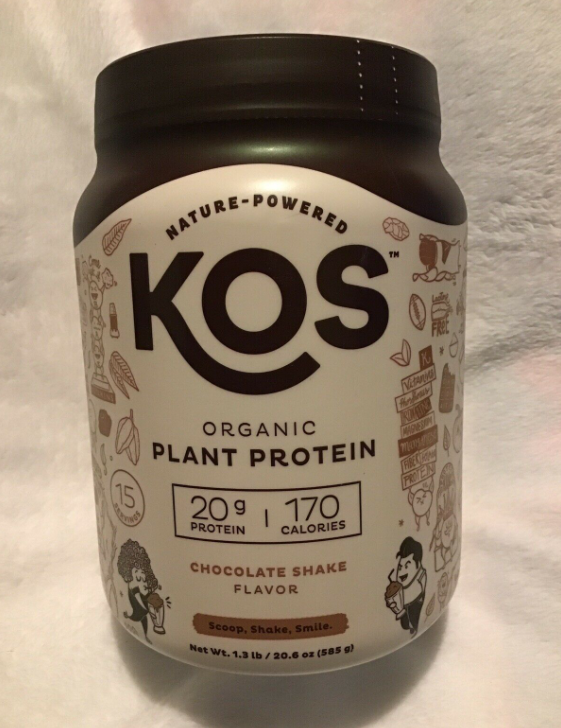
KOS Protein Review
As research indicates that both Whey and Plant based proteins promote identical strength and body composition, a lot of athletes are shifting to the latter due to various reasons. (7)
KOS is one of the best plant based protein brands without creatine.
Each serving contains 20 grams of blended plant-based protein that includes pea, flaxseed, quinoa, pumpkin seed and chia seed proteins. Amongst these, the concentration of pea protein is the highest.
Along with being a great alternative to dairy, KOS organic plant protein also contains a healthy dose of heart friendly fatty acids courtesy flaxseed and chia seeds. Also, the digestible fiber in these seeds keep you feeling full for much longer.
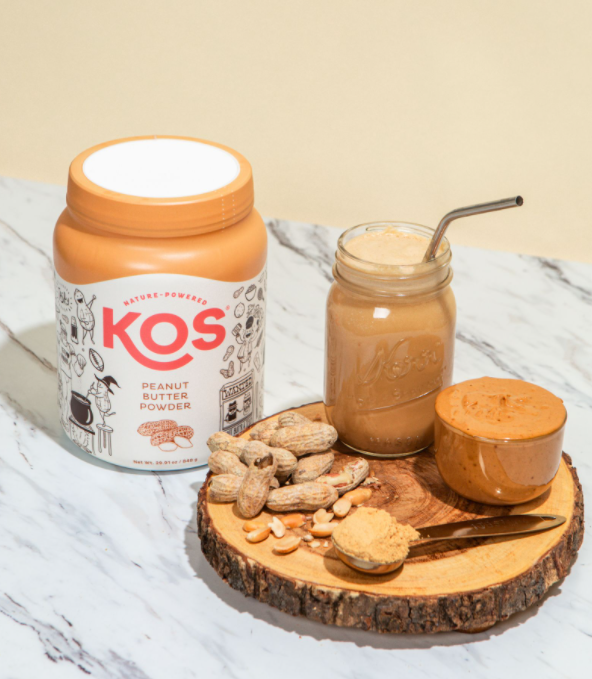
For those who may find it a tad difficult to transition from Whey to plant-based protein, KOS also throws in a digestive blend to make it easier on the gut.
While taste is subjective, this rates amongst the best protein powders that we’ve tried. It has a slightly thicker texture, maybe due to the fiber. But the flavor from the organic Peruvian cacaoand organic coconut milk make up for it.
It is sweetened using a blend of monk fruit and stevia.
#5 - Keto Friendly Protein Powder Without Creatine
Isopure
Best Features
- Zero carb Protein powder
- Perfect for ketogenic and LCHF diets
- 25 grams of Protein Isolate in each serving
- 5.5 grams of BCAA and 4 grams of Glutamine
- 8 flavors including one with added collagen
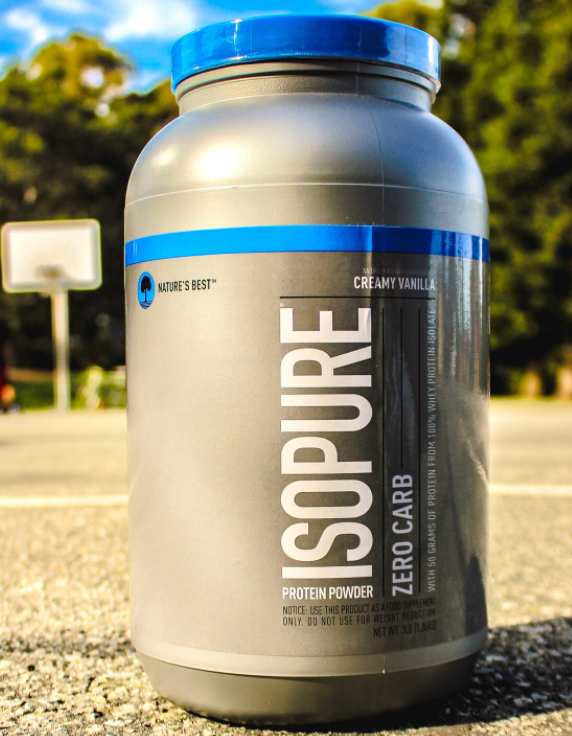
Isopure Reveiw
Isopure needs no introduction.
It is one of the most popular Whey protein isolate brands in the world. What we also like is that their labels are one of the cleanest.
There’s no unwanted junk. Just 25 grams of Whey Protein Isolate in each serving with zero carbs. Can’t go wrong with it.
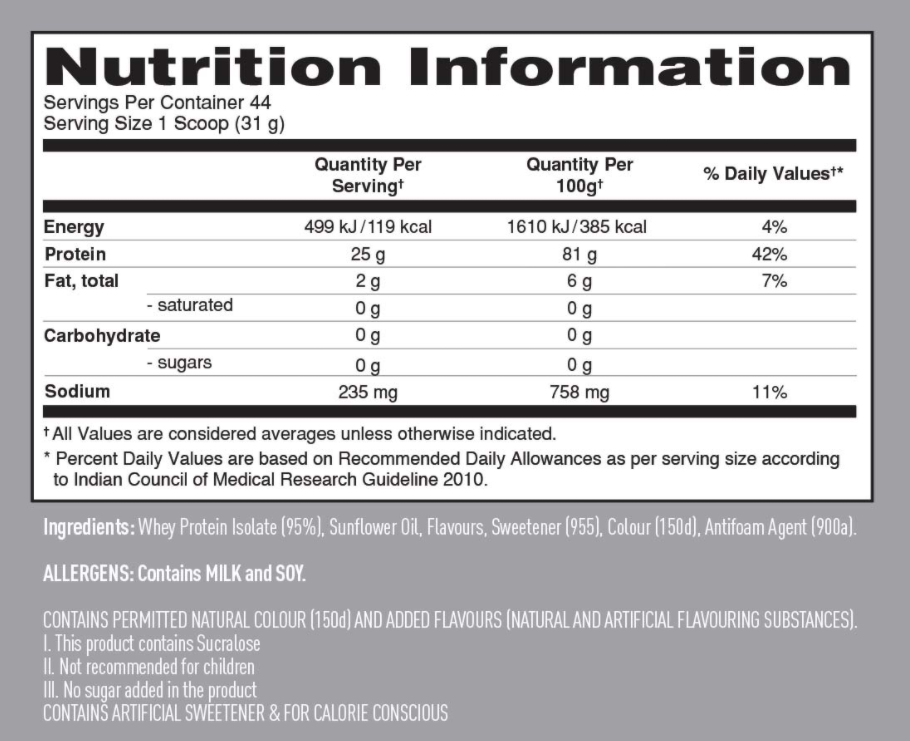
If you are on a ketogenic diet, or even looking for an isolate because blended Whey causes bloat, Isopure is one of the best choices you have.
It also earns the distinction of being one of the only protein powders that contains 4 grams of Glutamine in addition to 5.5 grams of BCAA. Along with enhanced recovery, this translates into less muscle soreness.
Isopure is available in 8 flavor options, including one with added collagen for reduced soreness. We love the coffee flavors.
#6 - Best Protein Powder for Sensitive Stomachs - ISO 100
Best Features
- 25 grams of Whey Isolate in each serving
- Less than 0.5 grams of lactose. So no bloat or flatulence
- Less than a gram of naturally occurring sugar
- Naturally flavored with cocoa
- Less than 2 grams of carbs. Perfect for ketogenic diet as well
- 15-flavors to choose from
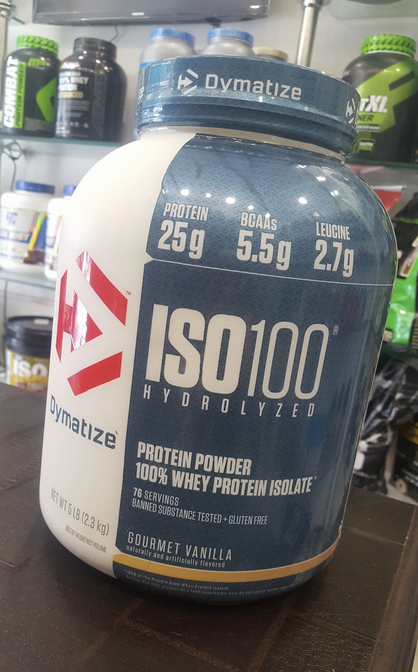
Dymatize ISO100 Review
The ISO100 from Dymatize is one of the oldest Isolate protein brands in the world.
It has been around forever and is quite popular with athletes who need a protein powder for sensitive stomachs, and experience severe flatulence, bloat and reflux with standard whey protein blends.
It contains less than 0.5 grams of Lactose, which is negligible.
Also, an often overlooked part is that it contains just 1.3 grams of Glycine per 100 grams. Glycine is the amino acid that increases creatine levels in your muscle tissue.
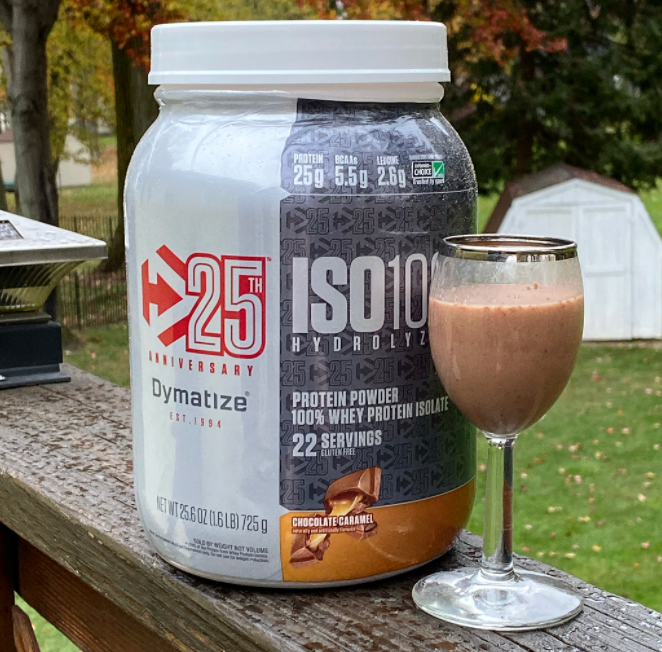
Each serving of ISO100 contains 25 grams of Whey Isolate with less than 1 gram of natural sugar, just 2 grams of carbs and 1 gram of fat. That’s perfect for weight watchers as well as athletes on a low carb diet, like the ketogenic one.
You also get the most flavor options with this brand. There are 15-flavors to choose from. All of them feature natural flavoring only.
One thing that must be mentioned is that ISO100 contains trace amounts of Soy. If that is a concern, then you might want to check out the other options in this list of best protein powders without creatine.
#7 - BSN SYNTHA-6
Best Features
- Tried and tested brand
- 6-protein type blend that is perfect for use at any time during the day
- 22 grams of protein, 14 grams of carbs and 2 grams of sugar
- 200 calories each serving
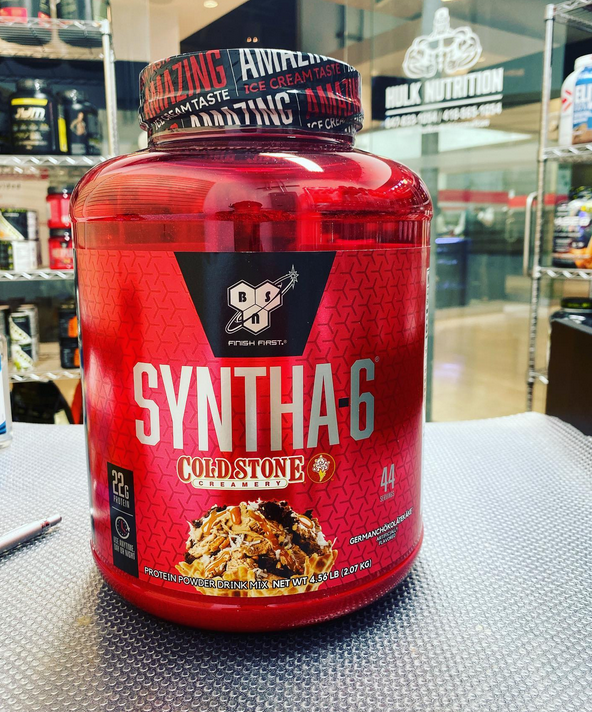
BSN SYNTHA-6 Review
BSN’s Syntha-6 is the first brand that introduced a whole bunch of delicious flavors in Whey Protein back in the day, when most brands just offered Vanilla and Strawberry flavors which tasted like sweetened chalk.
Guess what? They are still around and that speaks volumes of the quality and consistency of their products.
The Syntha-6 is a blend of 6-different protein types. This makes it ideal for use at any time during the day. There are protein types with different absorption rates. The rapid absorbing ones make for a great post workout shake, whereas the slow absorbing ones, like micellar casein are ideal for late night.
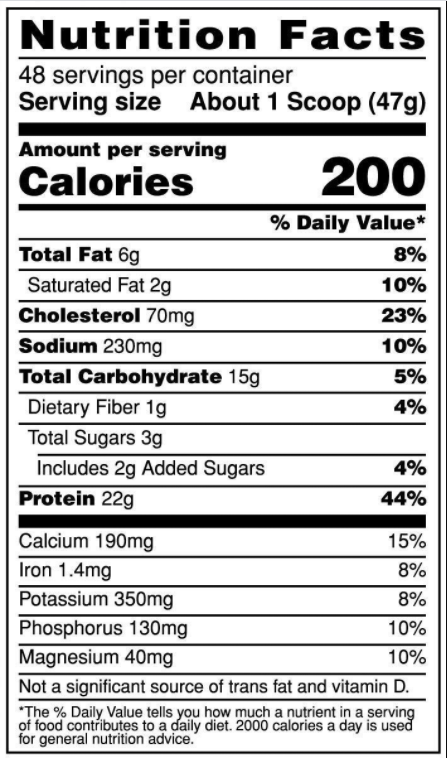
The product label and the flavor options have strangely remained unchanged over the years and do seem a little dated in comparison to the others in this list. There are four flavors to choose from. There’s Chocolate cake batter, chocolate peanut butter, pumpkin pie and Vanilla.
Each serving contains 22 grams of protein, 14g of Carbs and 2 grams of sugar, of which 1 gram is added sugar. Each serving is 200 calories which is a feather more than the 120-130ish that most other brands offer.
Like we said, nothing fancy. But its tried and tested. Hard to go wrong with it.
#8 – Garden of Life
Best Features
- 30 grams of plant based protein blend in two scoops
- 5.5 grams of natural BCAA and 5 grams of Glutamine
- Organic muscle recovery blend
- Flavored with a blend of vanilla and stevia
- Third party certified
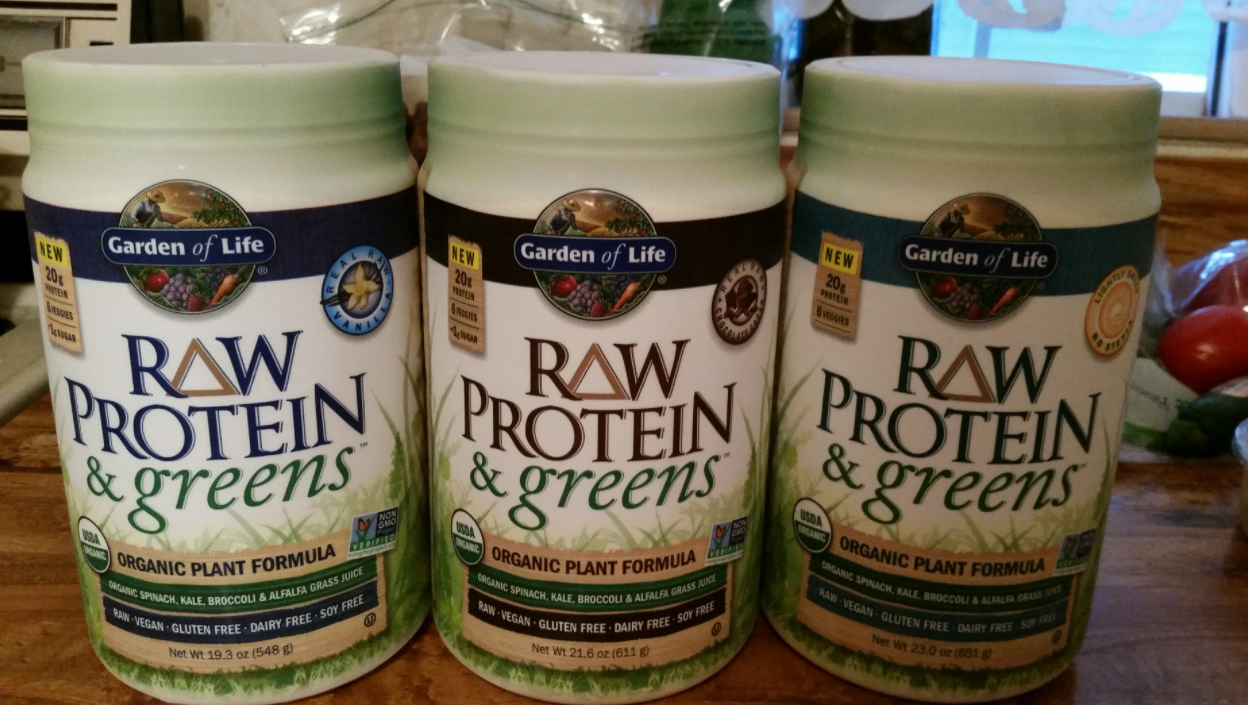
Garden of Life Protein Review
It’s very difficult to find a plant protein powder that offers more than 25 grams of protein in each serving.
That’s what you get with the Garden of Life’s Sport Protein powder. Each serving is 30 grams of a plant protein blend that includes Organic pea protein, sprouted navy bean, sprouted lentil bean and sprouted garbanzo bean.
That’s two scoops mind you. But at 42 grams, it’s not a massive difference from a scoop of Whey.
In addition to the protein, you get 5.5 grams of natural BCAAs and 5 grams of Glutamine, making it a great shake for athletic, as well as general use.
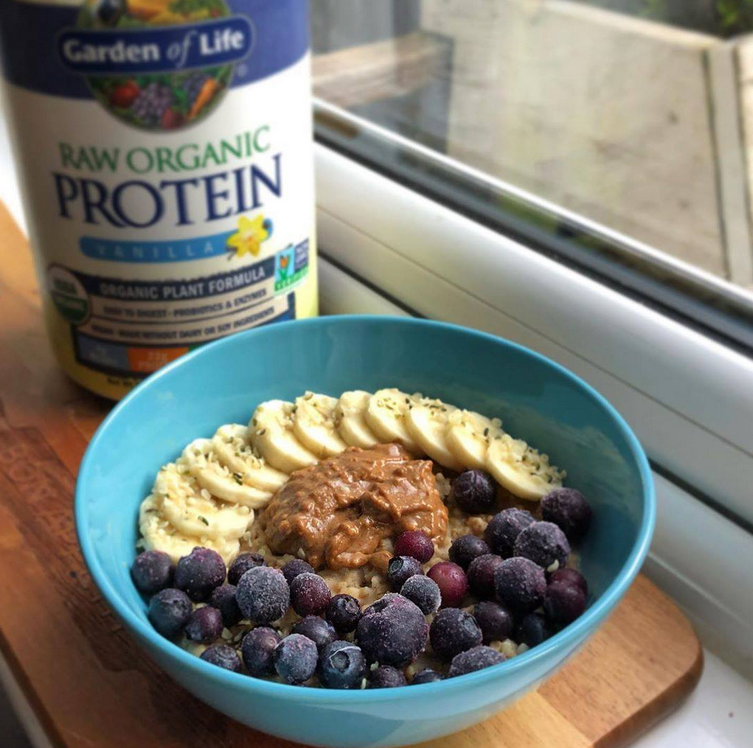
Everything in the powder, including flavoring is natural and organic. It’s a blend of vanilla and stevia and the taste is a little unique. Not overly sweet, nor does it have an aftertaste mind you. But does take some getting used to.
Also features an organic muscle recovery blend that contains Apple, tart cherry, turmeric root, blueberry and goji berry.
It is available in just two flavors, chocolate and vanilla. Both taste decent and are easy to blend.
Best Features
- Pea and Pumpkin seed protein powder blend
- Natural cocoa powder and other natural flavoring
- Clean Cream, a heart healthy creamer for a rich texture
- Blends easily
- 20 grams of protein in a serving
- Contains Velositol
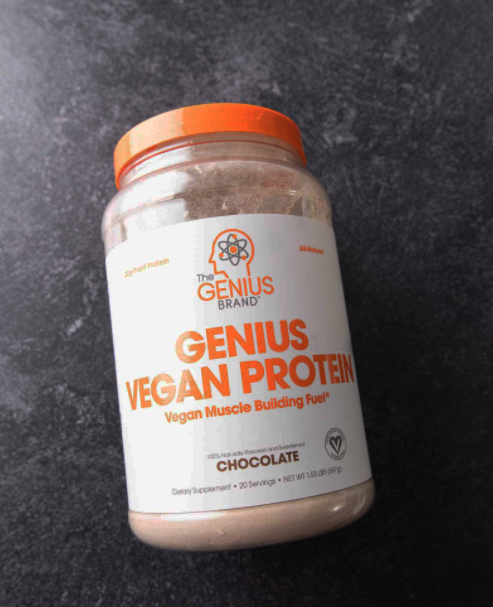
Genius Vegan Protein Powder Review
Genius’s Vegan Protein Powder is a delicious plant-based option for vegans and anyone looking to try an alternative to animal-based proteins.
A common gripe that athletes shifting to plant proteins have is that it tastes bland as compared to whey. This will change that notion forever.
It uses natural cocoa powder and other natural flavors. But the key ingredient here is Clean Cream, a heart healthy creamer that gives it a rich, milk protein-like texture.
It blends in a jiffy as well, which is always welcome.
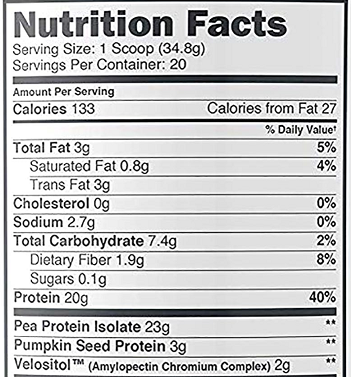
It is stevia flavored though. So there will be that mild aftertaste, especially for those who dislike stevia for this reason.
Each serving contains 20 grams of plant based protein, sourced from pea protein and pumpkin seed.
Genius also harps on Velositol, which is a blend of Amylopectin (a type of starch) and Chromium. There are a couple of studies that claim that this can double protein synthesis. But that’s gimmicky than anything else.
Even without the tall claims, this is a decent protein powder for vegans.
Best Features
- Tried and tested plant based protein brand
- 21 grams of a plant protein blend
- Pea Protein, Pumpkin seed and Chia
- Sweetened with stevia
- Natural flavors
- Mixes easily
- Great for all day use
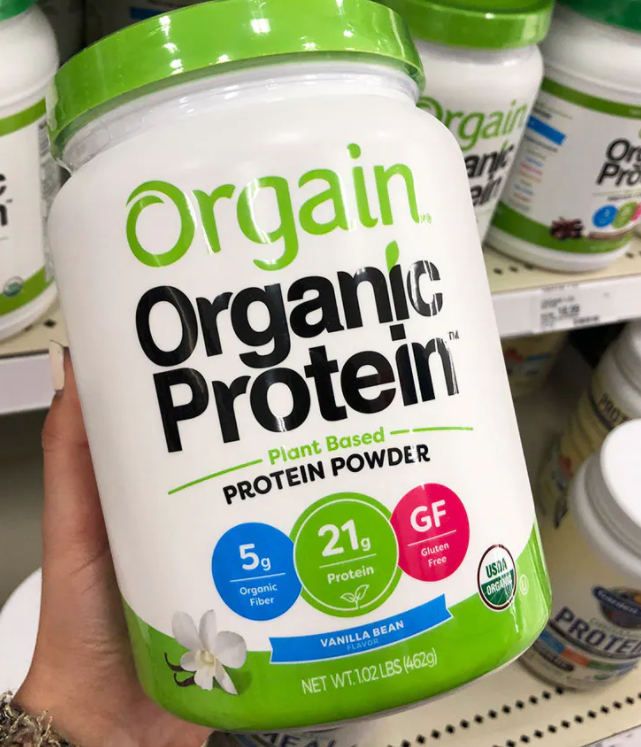
Orgain Organic Plant Based Protein Powder Review
Orgain is for plant based protein what Ascent Native (my #1 pick above) is for Whey Isolate.
I just wrote a comparison of Orgain and Vega where I review it more in depth if you want to check it out.
It is one of the oldest brands in the business and offers one of the cleanest label plant based protein powders.
Each serving is 21 grams of a botanical protein blend that includes pea protein, brown rice and chia seeds. Pea protein is considered the gold standard in plant protein, but so is brown rice, which is the next best thing. That’s a quality protein blend right there.
Chia seeds add up to 5 grams of dietary fiber that keeps you full for much longer and adds a bit of healthy fatty acids too.
The powder has a great natural flavor and is sweetened with stevia.
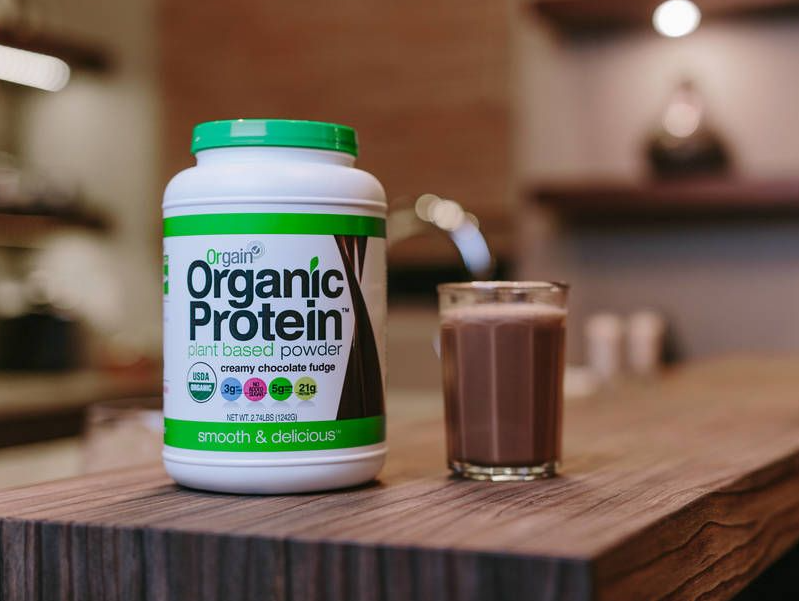
Mixes easily with any beverage of your choice and even when topped with fruit, doesn’t form a thick, undrinkable shake. It has a rich texture and is easy to gulp down.
The only thing that we would change about it given a chance is the slightly high sodium content. It’s 270mg. If you are concerned about this, then you can check one of the other plant based proteins above or you can read my latest article on my top low sodium protein powders here.
How to Choose the Best Protein Powder
Given the hundreds of protein powder brands in the market, and a host of shady marketing techniques employed by the industry, it certainly isn’t easy to navigate through it and find a protein powder that’s as healthy as advertised.
If you are stuck with analysis paralysis while scrutinizing protein powder labels, then here’s a brief guide that will help you select the best protein powder without losing your mind over it.
Plant Vs. Animal Based Protein
This is more of a personal choice than anything else. As we mentioned earlier, research has indicated that both plant and animal based protein powders produce similar results.
That said, Whey protein, which is sourced from dairy has a slightly higher concentration of the amino acid Leucine, which is marginally more effective at building muscle.
It also has a complete amino acid profile as opposed to some plant based proteins.
But Whey blends can cause digestive problems, especially if you are lactose intolerant. Isolates are a slightly better option. But watch out for the concentration of lactose in it before you buy.
Plant based proteins can also have hidden ingredients such as fillers and even creatine. So don’t automatically assume that it’s good because it is plant based.
All said and done, each one of the protein powders in this list have been handpicked and contain no unwanted ingredients.
Check the Source of Whey
While shopping for whey protein, you are likely to be met with different choices, like grass fed, native whey and grain fed.
Native Whey is the simplest, least processed of them all. This should be your go-to choice if possible.
The next best is grass fed whey, which has a slightly better nutrient profile as compared to grain fed whey.
Protein blends will typically contain different types of proteins with different absorption rates.
These are ideal for general use. If you have a specific fitness goal in mind, then go for Isolate or Casein.
Check the Carbs and Sugar
Weight watchers would want to keep an eye on the total carbohydrate content in each serving. While you need a hint of carbs to boost your insulin levels, which in turn will increase amino acid absorption, you don’t want to go overboard with it.
Ditto with sugar. On a positive note, most protein powders in this list contain less than 2 grams of sugar. Most of them contain no added sugar.
Check the Sweetener
Avoid artificial sweeteners like Sorbitol and Xylitol. Go for naturally sweetened protein powders if you can.
Stevia is an obvious choice. But some people are put off by the funky aftertaste it leaves.
Monk fruit is a much better choice. It has zero aftertaste and has a very mild sweet flavor.
Watch Out for Sodium and the Calories
With all the fuss over protein content and the type of protein, sodium often gets overlooked.
Don’t do that mistake. Anything with more than 200 mg of Sodium in each serving, is more than what you’d like. It can also offset the balance of electrolytes leading to bloat and blood pressure problems.
Also, check the number of calories in each serving.
120-150 calories are normal and acceptable. If you are on a calorie deficit, you might want to check out the low carb protein powder options. Those typically have the lowest calorific value.
My Complete Protein Powder FAQ
Here are a few common questions that we are asked while recommending protein powder to our readers.
Q. Is Protein Powder with Creatine Better Than Protein Powders Without?
A. Absolutely not. Creatine has no bearing whatsoever on the quality of the protein powder you select. That’s based on the factors that we just discussed.
At best, the will help gym rats looking for bigger muscles. Even if that is the case, then you can always buy some cheap creatine monohydrate and add it to your protein powder.
Any brand that adds creatine to their protein powder tends to hike up the prices making it an overpriced buy.
Q. What Is the Difference Between Vegan, Plant Based, and Grass-Fed?
A. In most cases, a vegan and a plant based protein are one and the same thing. The terms are used interchangeably on product labels.
These contain protein sources that are of non-animal and non-dairy origin, such as pea, pumpkin, brown rice, and quinoa, which happens to be a complete protein source.
Grass Fed isa term used to describe whey protein sourced from cows that are fed a grass based diet as opposed to grains. The difference in the two lies in the amount of Omega 3 fatty acids and CLA that it contains.
Grass fed whey protein contains more of these two components making it a superior choice over standard whey protein blends or concentrate.
Q. What Is the Best Kind of Protein Powder?
A. Well, any protein powder, be it plant based or vegan or animal protein, should be good to go as long as it has a clean product label.
Well, how do you describe a clean product label, you might ask.
The fewer the ingredients, the better. If there are flavors, natural flavors are better than synthetic ones. If it contains sugar, natural sugar is better than added sugar.
There should be no fillers and synthetic sweeteners.
You can select a protein powder based on the carbohydrate content or the calorie count, depending on your fitness goal, and your personal preferences.
If you are lactose intolerant or are looking to employ a plant based lifestyle, then any of the plant based protein powders in this list will be a great pick.
Else, go for whey. Isolates are better if you have gut issues. Blends work fine otherwise.
Performance wise or body composition wise, there is no real difference in any of them.
Related Readings:
- Best Alternative to Huel's Meal Replacement
- Soylent or Ensure, my comparison
- Ka'chava vs Huel, here's how they Compare
- Huel Vs Soylent, here's how they stack up
- Should You Take Creatine on Off Days?
- Pre-workouts Without Beta Alanine
- Which is right for you, Slim Fast or Nutrisystem?
References:
- https://www.ncbi.nlm.nih.gov/pmc/articles/PMC6142015/
- https://www.ncbi.nlm.nih.gov/pmc/articles/PMC3407788/
- https://www.ncbi.nlm.nih.gov/pmc/articles/PMC155510/
- https://pubmed.ncbi.nlm.nih.gov/18373286/
- https://pubmed.ncbi.nlm.nih.gov/20881878/
- https://accpjournals.onlinelibrary.wiley.com/doi/abs/10.1592/phco.25.5.762.63580
- https://www.ncbi.nlm.nih.gov/pmc/articles/PMC6358922/
Ben Mayz
Hi there! I'm Ben, main author and chief editor at Fitlifefanatics.com. I have been obsessed with Strength Training and Fitness for 18 years now.
My passion for living a happy fit lifestyle is what made me realize that fitness is what I wanted for my future.
I went on to earn my Masters in Sports Training & Biomechanics.
My passion for Strength training & fitness and my love of helping others is what made me start Fitlifefanatics.
Here, myself, and a team of specialist aim to provide the most accurate, and actionable information possible in hopes to help foster the fitness community forward.
You can learn more about Fitlifefanatics on our About Page


